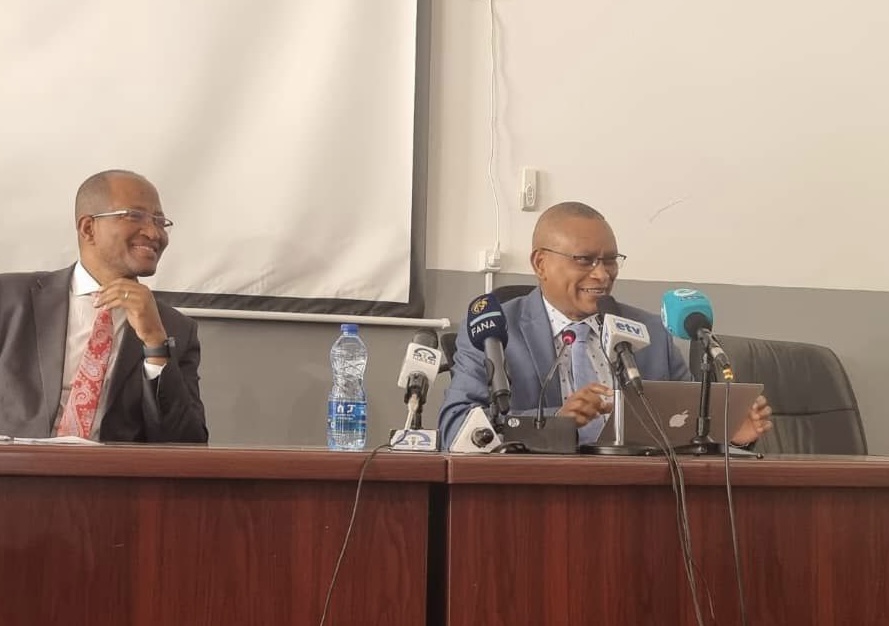TPLF head and leader of the Tigray rebellion Debretsion Gebremichael met the peace delegation sent by Ethiopian Prime Minister Dr Abiy Ahmed on December 25.
Over two years after his TPLF group launched the war with a deadly “preemptive strike” on the federal government in November 2020, the rebel leader held a meeting with Ethiopian House Speaker Legesse Chafo to discuss the implementation of a surprising peace agreement.
“I thank everyone here, but I would like to give a special thanks to Prime Minister Abiy,” Debretsion stated during the press conference in Mekelle.
In response, House speaker Chafo labeled the meeting as “a big symbol of hope” and his federal government’s effort is to “build trust” for the peace process.
While this peace deal has been supported by many Ethiopians, various groups from both sides have pushed hardline terms for its implementation.
Many supporters of the federal government accused Prime Minister Abiy of not “finishing off” the rebels when his federal army had the upper hand militarily in October. However, defenders of Abiy, the 2019 Nobel Peace Prize winner, say the lasting solution to the conflict in Tigray is political instead of military.
Meanwhile, TPLF rebel supporters, especially some of the Tigrayan diaspora living in Europe and the Americas, have spread misinformation on Western media and vilified Abiy on social media in order to push for Western sanctions against Ethiopia, even after the peace deal was signed. As these hardline Tigrayan diaspora groups have deep pockets and influence on Western policymakers, including US Congressmen, they have covertly advocated for Tigray rebels to re-group, re-arm and ultimately restart the war.
Independent observers say the peace accord may collapse due to the growing division between TPLF leadership on the ground and some of the Tigrayan diaspora. The major tools at the disposal of diaspora hardliners is their two infeasible demands: the removal of ethnic Amharas from their ancestral lands in Welkait (renamed “Western Tigray” in 1995 by Tigrayan expansionists) and the removal of Eritreans from territories awarded to Eritrea by the 2002 UN border commission (a decision rejected by Tigrayan expansionists). These two unattainable demands advocated by influential Tigrayan hardline activists living outside Tigray may rekindle the war. Another major sticking point that can derail the peace deal is the demands by many hardline Ethiopians for the prosecution of Tigrayan rebel leaders, including Debretsion himself, for starting the deadly war in 2020 which has destroyed the country’s infrastructure and killed thousands of Ethiopians, most notably the massacre of over a thousand Amhara civilians in Maikadra town in a single day.
After receiving the ‘Outstanding African Leadership Award’ in Washington DC in recognition of his Green Legacy Initiative, Ethiopian PM Abiy admitted last week that the Tigray peace deal is still fragile and a work in progress.




